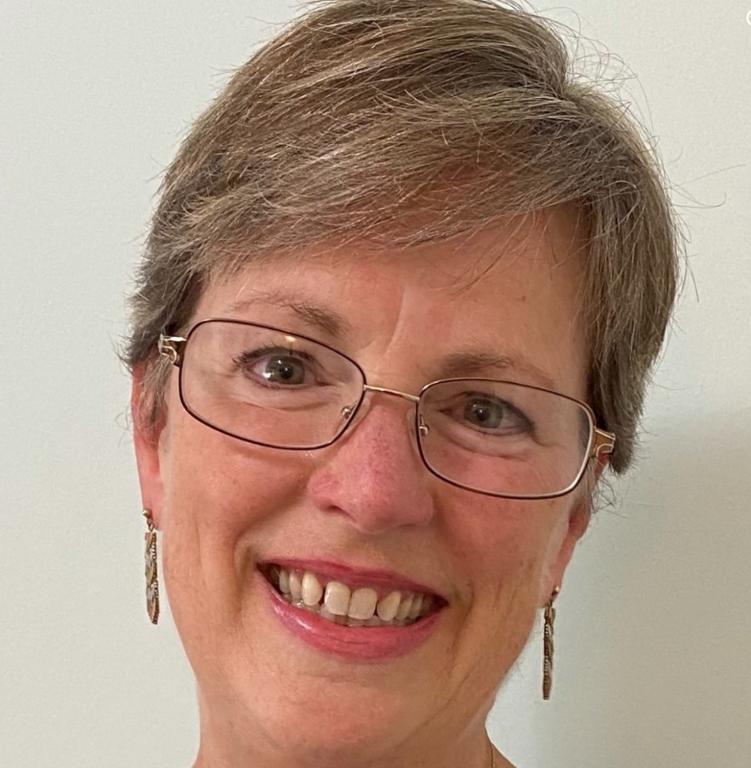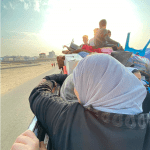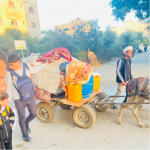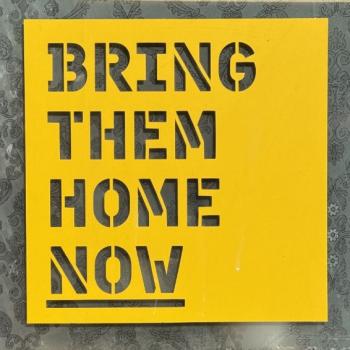Helplessness is agonizing. Having to choose between two equally dreadful options might be even worse.
If you’ve been following the news out of Gaza at all, you might have heard the word “evacuation.”
Or…maybe you haven’t. Mainstream news coverage of the “war” between Israel and Gaza has been woefully inadequate and one-sided. That’s why, as I tell you the story of our family’s journey, I’ll include links to trustworthy news sources. Everything I’m telling you is true, even if it seems hard to believe. I’ve been involved in this issue for years, and I know whereof I speak. In case you don’t trust me, I’ll be sharing with you the words of people who have lived their lives inside this story. If you’ve just arrived, I encourage you to read this for a bit of background (and also this and this and this).
Now, where were we?
If you’ve been following the news out of Gaza at all, you might have heard the word “evacuation.” It started with the northern half of Gaza, home to roughly 1.2 million Palestinians, whom Israel simply told to “go south.”
Gaza is one of the most densely populated places on the planet, and it’s nearly impossible to get out of Gaza, so there are not a lot of options when one is ordered to evacuate. But hundreds of thousands packed a suitcase, grabbed some bedding, important papers and a few other items, and made their way toward southern Gaza.
A few days ago, the area where our family in Gaza lives was also ordered to evacuate. Most of the neighbors were gone in a flash, but our family stayed put, debating for hours whether to leave and where to go if they did leave. As several family members told me, it was literally the hardest decision they’ve ever made.
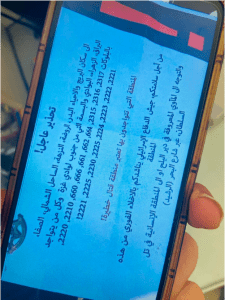
Why?
Where to begin?
Danger on every side
The Israeli military has designated several roads, for several hours a day, as humanitarian corridors, promising safe passage. These roads have regularly been packed with people and cars rushing for safety, or what they hoped would be safety.
Israeli warplanes more than once dropped bombs on these fleeing crowds, on one occasion (TW: disturbing video) killing 70 people. At one notorious point along the route, Israeli soldiers regularly perform facial recognition scans and often separate men from their families – often abducting them and holding them for days of interrogation, torture, and humiliation. Some never return.
When – or rather if – Palestinians make it to the south, the conditions are horrific. The massive number of refugees brought almost nothing with them; some of what they did bring had to be abandoned along the way, or was confiscated by Israeli soldiers. The winter rains have set in. It’s muddy, cold, and miserable, especially for those who have no roof or tent over their heads.
Would you rush to make such a trip?
Literally nowhere in Gaza is safe. Every place that Israel has designated a “safe zone” has been bombed. Again and again, Israel has attacked refugee camps, sometimes killing hundreds of Palestinians as they target one Hamas member. Israel’s leaders have made it clear that “safe zones” are not safe. Many people have evacuated and left everything behind, only to be killed anyway.
Health risks
Sanitation is a serious problem in areas where evacuees are gathering. In some shelters, nearly 2 months ago there was an average of 1 toilet per 600 people. As more and more Gazans head south every day, the ratio now is surely worse. Some refugee camps have no facilities at all. Sanitation systems have shut down long ago due to a lack of fuel. And the water is contaminated.
So, if you’ve been following the news, you might have heard words like, “epidemic” and “cholera outbreak.”
Anyone for a roadtrip?
The south of Gaza does have one thing the rest of Gaza lacks: a little bit of aid. The only usable entrance to Gaza is in the south. Thousands of humanitarian aid trucks are lined up on the other side of the crossing, waiting to pass Israel’s overly rigorous inspection and bring desperately needed food, water, and basic medical supplies. Human rights experts say 1,000 truckloads are needed per day.
But on a good day, 100-150 trucks enter Gaza. Israel has been trying to blame the UN for the slow pace, but it’s actually the lengthy screening process and the constant bombing that are keeping aid from reaching its destination. (Just the other day, Israel attacked a convoy of UN personnel.)
That’s why, if you have been following the news, you might have heard the words, “starvation” and “famine.”
Of course, most medical care facilities have been damaged or destroyed; the rest have run out of fuel and supplies. (Israel has begun allowing a whole two fuel trucks to enter Gaza per day – not nearly enough to transport the meager amounts of aid to those in need, and to fill the tanks of ambulances carrying those wounded in Israel’s constant bombardment.)
That’s why, if you have been following the news, you might have heard phrases like, “amputation without anesthesia” and “bacterial infection.”
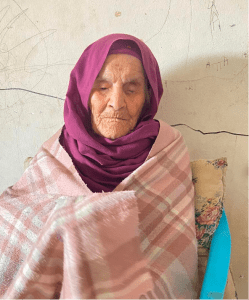
Return
And there is the question of return. There is literally no way to know whether any Palestinian will be allowed to return home – or whether anything will be there if they do. Ask the matriarch of our family, Zahiyyeh, who is in her upper 90s.
She was evacuated from her village in 1948 with only the clothes on her back, and never allowed to return. She has lived in a refugee camp in Gaza ever since, watching two more generations grow up in poverty and hopelessness. And now, unwillingly, she is in limbo again.
Moral of the story in Zahiyyeh’s eyes: a bird in the hand is worth two in the bush. Hang onto what you have. Stay where you are… unless the whole family is evacuating.
Any way you slice it, what’s happening right now is genocide and ethnic cleansing. (The US and its taxpayers are complicit in these deeds.)
That’s why our family had a long, agonizing discussion about whether to stay or leave.
So, why not stay?
Stay and regret it
Israel has made it clear that anyone who disobeys evacuation orders will be considered the enemy, and her/his safety can not be guaranteed. Empty – or supposedly empty – buildings are regularly bombed to rubble. One of our relatives had two young adult sons who decided to return to their evacuated home to get a few things. The building was flattened while they were inside. This is just one of many similar stories.
There are other stories too, about people who stayed. Stories of kidnapping by Israeli soldiers – followed by torture and humiliation. Thousands of Gazans are missing – many are presumed under the rubble, but others just disappeared.
There are also stories of point-blank executions of families. Take your pick.
Impossible choice
My niece Horea (age 25) described for me the awful decision-making process for the twenty extended family members in the house that night:
Yesterday we were sitting together discussing the matter. My father felt very nervous about making the right decision. He was afraid that he would make a decision that he would regret. He was very afraid for us.
He asked the rest of us what we think.
But we also do not have a right decision. We have considered all possibilities…
We thought of going to [stay with relatives in] Deir Al-Balah..But there is also constant bombing, and the schools [where thousands of refugees are sheltering] will bring many diseases.
We also thought about going to Rafah, but Rafah is also being bombed. We are not safe from the treachery of the occupation, because they bomb cars carrying displaced people… there is no safety…
We also do not know that if we went to a place and there was a “wanted” person, the occupation would kill all the innocent people for the sake of one wanted person.
Indeed, this is the most difficult decision of our lives. We are about to perish.
Her brother, Mousa (age 23, I think), said,
We do not know where to go. All the places are crowded and epidemics are spreading.
I do not know why fear does not control us. Despite all the bombing around us, we are still not afraid and somewhat reassured.
I’m still not worried about myself, but I’m very worried about my family.
If we don’t meet, write about me. I loved life, I loved the field of pharmacy, and writing, and I was a peaceful, dreamy person.
This is the most difficult test we are exposed to. It is life or death.
So the many hours of debate boiled down to “how do you want to die?” Group A: hunger and/or disease? or Group B: airstrike and/or gunshot and/or torture at the hands of Israel?
Then the message:
We have decided to leave, and we do not know whether it will be on foot or by truck, and we do not know where to go yet.
Everyone in the camp left, and last night was the most difficult night ever, the sound of tanks and bombing, and we miraculously survived it.
I repeat by sending my love to you.
And so it begins.
…Or ends.
Every day I wait to hear from them on WhatsApp. I send them a �� or a ❤️ and pray they will answer.
I invite you to subscribe to my newsletter. I write about the Palestine-Israel issue regularly, and other issues relevant to progressives or those considering becoming progressive. Right now, it’s all about Gaza because nothing matters to me more than family, and Americans are enabling the massacre of Gazans.
If you would like to comment on this post, please pop over to my Facebook page. All of my posts are there and open to constructive comment. I welcome your thoughts.
- Follow this refugee family’s quest for survival in Gaza
- Have a (slightly) blue Christmas
- Can followers of the Prince of Peace support a group that uses violence?
- Why support for Palestinian resistance is the right response for Christians
- This thought experiment will make you smarter about Gaza and Israel
- Getting real about Palestine with Spiritual Brewpub
- A Palestinian Pastor’s powerful message to us: “it’s time to stop praying”
- Christians: Why do we skimp on compassion when it comes to Palestinians?
- Don’t compromise truth on Israel and Palestine
- What People Of Faith Need To Know About Gaza And Israel Right Now


